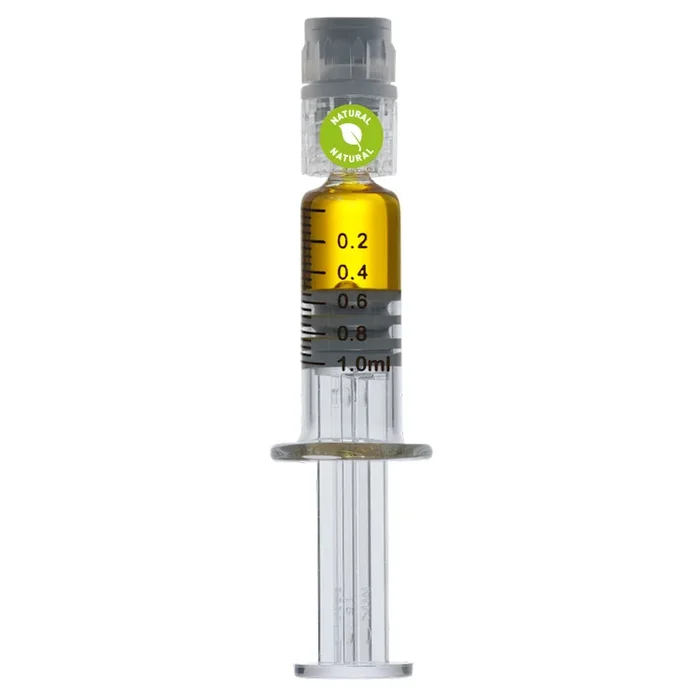- No Products In The Cart
- start shopping
Cannabis for IBD: Exploring a Natural Approach to Managing Inflammatory Bowel Disease

Looking for a natural approach to managing Inflammatory Bowel Disease (IBD)? Explore the potential benefits of cannabis for IBD in this informative guide. Discover how cannabinoids interact with your body’s systems and learn about the latest research on Cannabis for Managing Inflammatory Bowel Disease symptoms.
Understanding IBD and its Symptoms
IBD refers to a group of disorders characterized by inflammation in the digestive tract. Crohn’s disease can affect any part of the gastrointestinal tract, while ulcerative colitis primarily affects the colon and rectum. Both conditions cause similar symptoms, including abdominal pain, diarrhea, rectal bleeding, fatigue, and weight loss.
The chronic nature of IBD means that patients often experience periods of flare-ups and remission. These flare-ups can be unpredictable and significantly impact patients’ quality of life. Therefore, it is crucial to adopt long-term management strategies that help alleviate symptoms and reduce the frequency and severity of flare-ups.
The Endocannabinoid System and Cannabis
To understand how cannabis may benefit IBD patients, we need to delve into the fascinating world of the endocannabinoid system (ECS). The ECS is a complex network of receptors, enzymes, and endocannabinoids found throughout the body. Its primary function is to maintain balance and homeostasis in various physiological processes.
Cannabis contains cannabinoids, such as tetrahydrocannabinol (THC) and cannabidiol (CBD), that interact with the ECS. THC has psychoactive properties and is responsible for the “high” commonly associated with marijuana use. On the other hand, CBD does not induce psychoactive effects but has been attributed to various therapeutic benefits.
Research on Cannabis and IBD
Numerous scientific studies and clinical trials have explored the potential of cannabis as a treatment option for IBD. These studies have yielded promising results, suggesting that cannabis may provide relief for many IBD symptoms.
One study published in the journal Clinical Gastroenterology and Hepatology found that cannabis use was associated with a higher likelihood of achieving clinical remission in patients with Crohn’s disease. The study involved 292 patients, with approximately 45% reporting cannabis use. Among the cannabis users, 51% achieved clinical remission, compared to only 35% of non-users.
Another study published in the Journal of Crohn’s and Colitis investigated the effects of cannabis use on patients with ulcerative colitis. The researchers found that cannabis use was associated with improved clinical outcomes and quality of life. Furthermore, the study reported that cannabis users were less likely to require surgery compared to non-users.
Despite these positive outcomes, it is important to note that research on cannabis and IBD is still in its early stages. There are several limitations and challenges in conducting comprehensive studies due to legal and regulatory barriers surrounding cannabis use. Additionally, the specific mechanisms by which cannabis exerts its therapeutic effects in IBD are not yet fully understood.
Types of Cannabis Products for IBD
When considering cannabis as a potential treatment for Inflammatory Bowel Disease (IBD), it’s important to understand the various types of cannabis products available. These include CBD oil, THC-rich strains, and medical cannabis.
CBD oil, or cannabidiol, is a non-psychoactive compound found in cannabis. It is available in various forms, such as oils, capsules, and topical creams. CBD has gained popularity for its potential therapeutic benefits, including anti-inflammatory properties, pain relief, and relaxation effects. Many IBD patients have reported finding relief from symptoms such as abdominal pain and inflammation with the use of CBD oil.
On the other hand, THC, or tetrahydrocannabinol, is the psychoactive compound in cannabis responsible for the “high” sensation. THC-rich strains are typically associated with recreational use; however, they may also have potential benefits for IBD patients. Some studies suggest that THC can help with pain management, appetite stimulation, and reducing nausea and vomiting.
Medical cannabis refers to cannabis products prescribed by healthcare professionals for specific medical conditions. These products are often regulated and standardized to ensure quality and consistency. Medical cannabis may contain varying levels of CBD and THC, depending on the patient’s needs and the prescribing guidelines.
It’s crucial to consult with a healthcare professional experienced in cannabis therapeutics to determine the most suitable product and dosage for individual circumstances. They can provide guidance on the different options available and help ensure access to legal and quality-controlled cannabis products.
Effectiveness and Safety Considerations
The effectiveness of cannabis in managing IBD symptoms has been a topic of interest in both scientific research and anecdotal reports. While there is growing evidence to support its potential benefits, it’s important to approach the topic with caution.
Some studies have shown promising results, indicating that cannabis may help reduce inflammation, alleviate pain, improve appetite, and promote overall well-being in IBD patients. However, it’s worth noting that the existing research is limited and more rigorous studies are needed to establish conclusive evidence.
-
Product on sale
 Mix & Match – Jungle Ridge Concentrates 7 x 1g (7g)Starting at Original price was: $176.40.$158.76Current price is: $158.76.
Mix & Match – Jungle Ridge Concentrates 7 x 1g (7g)Starting at Original price was: $176.40.$158.76Current price is: $158.76. -
Product on sale
 Mix & Match – Jungle Ridge Concentrates 4 x 7g (28g)$261.00 – $510.30
Mix & Match – Jungle Ridge Concentrates 4 x 7g (28g)$261.00 – $510.30 -
Product on sale
 Mix & Match – KleerX Concentrates 7 x 1g (7g)Starting at Original price was: $105.00.$94.50Current price is: $94.50.
Mix & Match – KleerX Concentrates 7 x 1g (7g)Starting at Original price was: $105.00.$94.50Current price is: $94.50. -
 Boost – THC Distillate (1000mg)$19.00
Boost – THC Distillate (1000mg)$19.00
It’s also essential to consider potential side effects and safety considerations associated with cannabis use. Common side effects may include dry mouth, dizziness, impaired coordination, and cognitive effects. In some cases, THC-rich products may induce anxiety or paranoia, particularly in individuals sensitive to these effects. Additionally, long-term effects and interactions with other medications are areas that require further investigation.
Personalized treatment plans and close monitoring by healthcare providers are crucial when considering cannabis for IBD. Working with a knowledgeable healthcare professional ensures that potential benefits are maximized, potential risks are minimized, and the treatment plan aligns with individual needs and circumstances.
Legal and Regulatory Landscape
The legal status of cannabis varies across different jurisdictions, impacting its availability for medical and recreational use. In some regions, medical cannabis is legally recognized and can be prescribed by healthcare professionals for specific conditions, including IBD. In other areas, cannabis may be legal for recreational use, but its medical applications may still have restrictions.
It’s important for individuals considering cannabis for IBD treatment to understand the specific legal and regulatory landscape in their jurisdiction. This includes knowing the requirements for obtaining medical cannabis, such as obtaining a prescription or medical card. Staying informed about changes in legislation and regulations is crucial, as laws surrounding cannabis use continue to evolve.

Furthermore, it’s important to note that regulations and restrictions on cannabis can vary significantly even within a country or state. Factors such as possession limits, cultivation rules, and product quality standards may differ between regions. Therefore, it’s necessary to seek up-to-date information from reliable sources and consult with healthcare professionals familiar with local regulations.
Navigating the legal and regulatory aspects of cannabis for IBD treatment can be complex. Seeking guidance from healthcare professionals, patient support groups, and legal experts can provide valuable insights and ensure compliance with the applicable laws and regulations.
Conclusion
While cannabis shows promise as a natural approach to managing symptoms associated with Inflammatory Bowel Disease (IBD), it is important to proceed with caution due to the early stage of research in this area. Legal and regulatory barriers have limited comprehensive studies, and the specific mechanisms by which cannabis exerts its therapeutic effects in IBD are still not fully understood. Consulting with healthcare professionals who specialize in IBD and cannabis can provide personalized guidance and ensure comprehensive care. Further research, including large-scale clinical trials, is needed to validate the existing findings and assess the long-term effects and safety of cannabis use in IBD treatment.
FAQs

Is cannabis good for gastrointestinal?
Cannabis has shown potential in providing relief for gastrointestinal symptoms, including those associated with Inflammatory Bowel Disease (IBD). The cannabinoids found in cannabis can interact with the endocannabinoid system, which plays a role in regulating gastrointestinal functions. However, further research is needed to fully understand the specific benefits and optimal usage of cannabis for gastrointestinal conditions.
Can cannabis cause IBD?
There is currently no scientific evidence to suggest that cannabis use directly causes Inflammatory Bowel Disease (IBD). The exact cause of IBD is still unknown, but it is believed to involve a combination of genetic, environmental, and immune system factors. While cannabis may have potential therapeutic benefits for managing IBD symptoms, it is important to consult with healthcare professionals and consider individual circumstances before incorporating it into a treatment plan.
Can I smoke with IBD?
Smoking, including smoking cannabis, is generally discouraged for individuals with Inflammatory Bowel Disease (IBD). Smoking has been associated with an increased risk of complications and flare-ups in IBD patients. Additionally, smoking can have detrimental effects on overall respiratory health. If considering cannabis as part of an IBD management strategy, alternative consumption methods such as vaporization, edibles, or oils may be more appropriate and preferable.
What are the two main triggers for IBD?
The exact triggers for Inflammatory Bowel Disease (IBD) are not yet fully understood. However, several factors are believed to contribute to its development. Genetic predisposition plays a significant role, with certain gene variants increasing the susceptibility to IBD. Environmental factors, such as diet, smoking, and exposure to certain infections, are also believed to influence the risk of developing IBD. It is important to note that triggers can vary among individuals, and a comprehensive understanding of IBD’s causes is still evolving.
Why is IBD more common now?
The prevalence of Inflammatory Bowel Disease (IBD) has indeed increased over the past few decades, but the exact reasons for this rise are not entirely clear. Changes in lifestyle, including diet, hygiene practices, and exposure to environmental factors, may contribute to the increased incidence of IBD. Additionally, improvements in diagnostic techniques and increased awareness of the condition could also contribute to more accurate and frequent diagnoses. Ongoing research aims to shed light on the complex factors influencing the rising prevalence of IBD.
